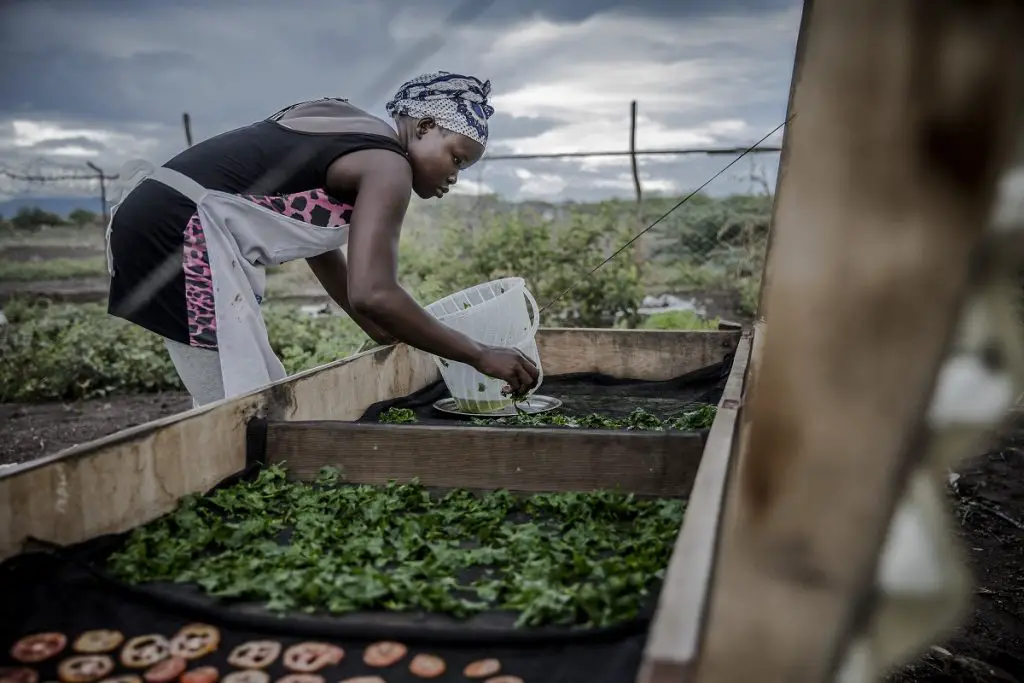Africa is prone to hunger crises every so often when disasters strike and with the covid-19 coronavirus pandemic, it may not be different.
In East Africa, for instance, the pandemic hit when farmers are preparing their lands for planting making it a challenge for the region that is also battling a desert locust outbreak.
So, what does this mean to the region which has suffered the brunt of inadequate food supplies which keep dwindling by the day?
For starters, the UN-FAO has warned that the locust outbreak in East Africa is the worst to strike Ethiopia and Somalia for 25 years — for Kenya, in 70 years. Djibouti, Eritrea and Uganda have also been affected.
Coronavirus: African leaders stuck with neglected, outdated healthcare systems
“The situation is especially extremely alarming in East Africa, where 20 million people are already considered acutely food insecure. There, the swarms have laid eggs and new immature swarms are starting to hatch, right at the start of the region’s main agricultural season,” notes FAO.
The UN body adds that pasture and croplands have already suffered damage, and there are potentially severe consequences for the region where millions rely on agriculture and livestock rearing for their survival.
Enter the covid-19 coronavirus and things get thicker for the region looking at the compendium of challenges piling in East Africa, especially.
However, the food systems may not be hard hit by the virus pandemic.
The agricultural sector may be spared the pain of the covid-19 pandemic since in Africa many people produce their own supplies. If the virus spread is caught and stopped before it spreads to the rural areas which are the breadbaskets, then the food systems could be safe.
Africa’s 60 per cent of the population is engaged in agriculture. The bulk of these are small-scale farmers who produce roughly 80 per cent of the food consumed in different economies.
In the mix though are the few purely subsistence farmers who grow most of their own food for their consumption. These are the ones who would be hardest hit if the virus found its way beyond the urban areas.
Farmers could be well-placed to weather the coronavirus crisis since they can feed themselves and in case of having extra produce, they can earn an income unlike in other forms of employment which may or have already started showing signs of a decline.
Intra-regional trade could create 2 million new jobs for East Africa
While the production may be marginally affected, those in the food distribution channels should be prepared to deal with problems from quarantine measures and transport disruptions.
Since most food transportation is bulky, it requires human-to-human interaction on many levels meaning with the ongoing lockdowns, quarantines and the requirement for minimal human interaction there will be interruptions. This could mean more wasted produce due to rotting since many smallholder farmers may not have coolers or simply because there is no means to get the produce to the market.
FAO notes that disruptions are minimal as food supply has been adequate and markets have remained stable so far.
The body notes that a negative effect on food production of high-value commodities like fruits and vegetables is already likely with lockdowns and disruptions in the value chain.
“We are already seeing, however, challenges in terms of the logistics involving the movement of food and the pandemic’s impact on livestock sector due to reduced access to animal feed and slaughterhouses’ diminished capacity similar to what happened in China,” FAO says.
The full effect of the disruptions in the food supply chains due to the pandemic will start being seen in April and May.
Africa and developing countries are particularly at risk as the disease can lead to a reduction in the labour force, and affect labour-intensive forms of production (agriculture) but also because most of the food crises countries are in Sub-Saharan Africa.
For now, and in the foreseeable future, the coronavirus risks to food production are minimal.
What does this mean for the future farmer in Africa?
For those who are in a position to feed the future, this is their time to prepare for the market demands that will come with post-coronavirus Africa. Since many jobs will be affected and the economy may take time to recover, the farmer is well placed to benefit from the crisis.
Food is the most important basic need which many need and will still continue to demand no matter the crisis. Farmers should, therefore, be prepared to deal with diverse orders and even working with governments to satisfy a possible surge in food demand.
Also, the sector may become one of the most lucrative employers hence those seeking to recover from the covid-19 financial crisis may need to start adapting to a new normal of being in the food supply chains.
